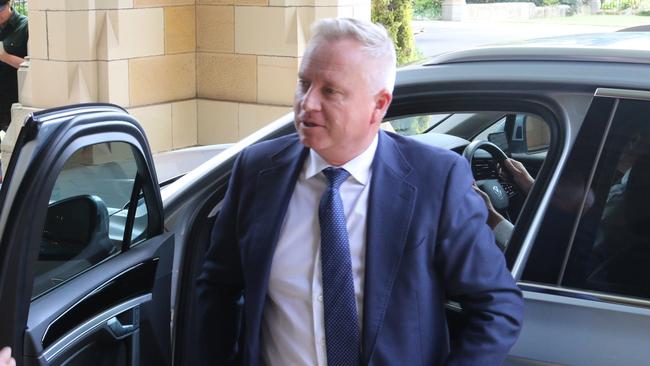Tasmanian leaders are open to minority rule after March 23 election called
Both major parties in Tasmania have flagged a willingness to govern in minority, but not in a formal deal with the Greens, as the state heads to an early election on March 23.

Both major parties in Tasmania have flagged a willingness to govern in minority, but not in a formal deal with the Greens, as the state heads to an early election on March 23.
The nation’s last surviving Liberal Premier, Jeremy Rockliff, blamed the poll – to be held 14 months before it is due – on independents “holding the government to ransom”.
However, with his own reforms likely to lead to more independents and minor party MPs, Mr Rockliff said he would “respect” the election outcome and work “maturely” to govern in minority, if required.
“I will not be doing deals with the Greens but I will respect the outcome of the election and the will of the voters,” Mr Rockliff said in Hobart, after visiting Governor Barbara Baker to request the early poll.
“I will have the maturity, of course, to govern sensibly on the best interests of all Tasmanians.”

Mr Rockliff, facing his first election as leader, outlined “key principles” to apply in working with independent or minor party MPs.
“I will not agree to anything that constrains me or my government, I will not be trading ministerial positions or policies, and the (Liberal) 2030 strong plan is not negotiable,” Mr Rockliff told reporters.
The Premier, who took the reins from a retiring Peter Gutwein in April 2022, has been governing in minority since May 2023, with the support of two ex-Liberal independents.
One of the turncoats, John Tucker, had briefly threatened to withdraw that support, leading Mr Rockliff to demand both independents sign a new deal promising not to support non-government motions and amendments.
They refused but offered to continue providing supply and confidence; something Mr Rockliff rejected, claiming the arrangement had become too “uncertain”.
However, he did not elaborate when quizzed as to how he could work with left wing or green-tinged independents in a new parliament if he could not work with Liberal-leaning crossbenchers in the old one.
Labor leader Rebecca White vowed not to “do deals” to form government, but like Mr Rockliff was open to governing in minority.
“We won’t be doing deals with the Greens or any other minor party,” Ms White said. “(However) we live in a democracy and I’ll respect the outcome.”
Mr Rockliff flagged a campaign fought on the Liberals’ record after 10 years in power, trumpeting the state’s economic resurgence and defending the party’s performance amid struggling health, housing and public transport systems.
“We have delivered historically low unemployment and 53,000 new jobs have been created,” he said.
Ms White promised to cap power prices, flagging a campaign fought on cost of living concerns and public services.
“It’s time for a change of government in this state; the Liberal Party has had 10 years and if they can’t fix the problems of cost of living or health or housing by now they never will,” she said.
Ms White declared the government’s deal with the AFL to deliver a Tasmanian team and new stadium in Hobart was “impossible” to deliver and would be renegotiated by Labor.
Greens leader Rosalie Woodruff said a decade of Liberal rule had left Tasmania “in bit of a mess”. “There’s not enough affordable housing, people can’t get an ambulance when they need one, and despite the climate crisis native forests are still being logged and burned,” Dr Woodruff said.
In a move likely to make it more difficult for the Liberals to win a majority, former Liberal attorney-general Elise Archer, who quit politics in 2023 in the wake of a texting scandal, announced she would seek to return as an independent.
Ms Archer could split the Liberal-learning vote in the Hobart-based electorate of Clark, given she was a major vote winner in 2021.
The Liberals held 11 seats in the former House of Assembly, Labor 8, independents 4 and the Greens 2.
With Mr Rockliff’s reforms increasing the Assembly from 25 MPs to 35, the quota for a seat under the Hare Clark system drops from 16.7 per cent to 12.5 per cent, making it easier for independents and minor parties to win seats.








To join the conversation, please log in. Don't have an account? Register
Join the conversation, you are commenting as Logout